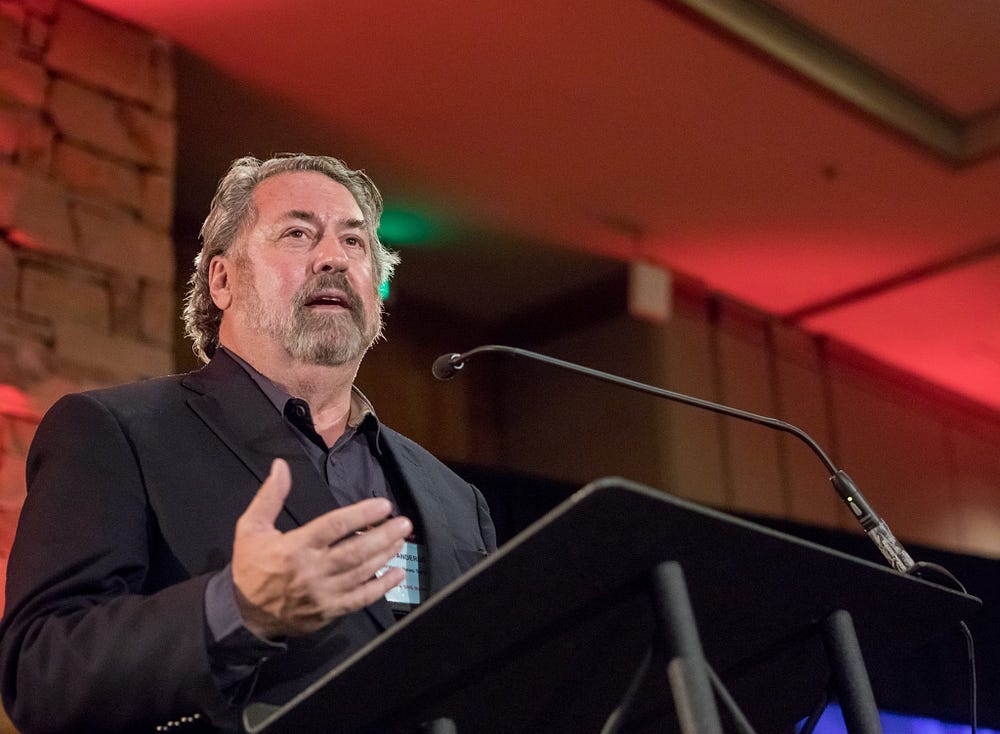FiRe 2017: Thinking in the Century Scale
By Charly Kuecks

Mark Anderson, the founder of Strategic News Service, raised a question in his opening address to Future in Review XV (FiRe XV) conference in Deer Valley, Utah. “Are things as bad as they feel?” he said. In a world with ecommerce gone crazy, acute privacy concerns, and complex security challenges, it was a reasonable question to pose, even to a room full of optimists.
Anderson posited that when it comes to the accelerating pace of change, it’s not about the century, it’s about the scale. He remarked that the term “innovation” is overused to the point of becoming a buzzword. Instead, he began at the level of the concrete: What happens when we move beyond an oil dependent economy? Why are we seeing so many new century-scale changes all at once? In a world in which population has grown from 1.6 billion in 1900 to 7.6 billion today, we need to adopt systems-level thinking.
Anderson said that our plugged-in society bombards us with as much alarming news as we can seek out. However, he believes that compared to a century ago, there is a need for systems-level understanding that transcends mere survival. Anderson said that this means thinking beyond one’s egocentric view.
Anderson also reflected on how the FiRe conference itself has scaled in the past 15 years. He said he believes this is the conference’s pivot moment. FiRe is headed forwards, not backwards. “We’re now enablers as well as creators,” he said. He also encouraged the audience to go beyond listening to “get off your butt and do it”.
Anderson views the evolution of the conference as a way to address challenges, such as urban wildfires and actionable climate change solutions that aren’t being addressed elsewhere.
FiRe XV promises to be exciting, according to Anderson, addressing timely issues such as intellectual property theft and multilateral treaties. He highlighted some of FiRe XV’s standout sessions on the agenda including the Undiagnosed initiative of Katia Moritz. The Earth Energy Monitoring System (E2MS), and new books on Flow Interaction and The Pattern Future are other cutting-edge projects developed and showcased at Future in Review.
So, are things really that bad? Anderson said we may have the “luxury” of knowing about every bad turn the world takes the moment it happens, but compared to the challenges of the twentieth century like the two World Wars and the Great Depression, we have it pretty great. World poverty has dropped significantly, and breakthroughs every day in science and technology promise to improve quality of life across the world.
“We have created our own tools,” said Anderson, “we have found with them new truths.” He encouraged the audience to use these discoveries to forge new solutions, in a drive to achieve real and beneficial change.
Anderson inspired the audience by saying, “the future is ours to create.” In answer to his rhetorical question, he spoke directly to the audience.
“There’s never been a better time to be alive,” he said.